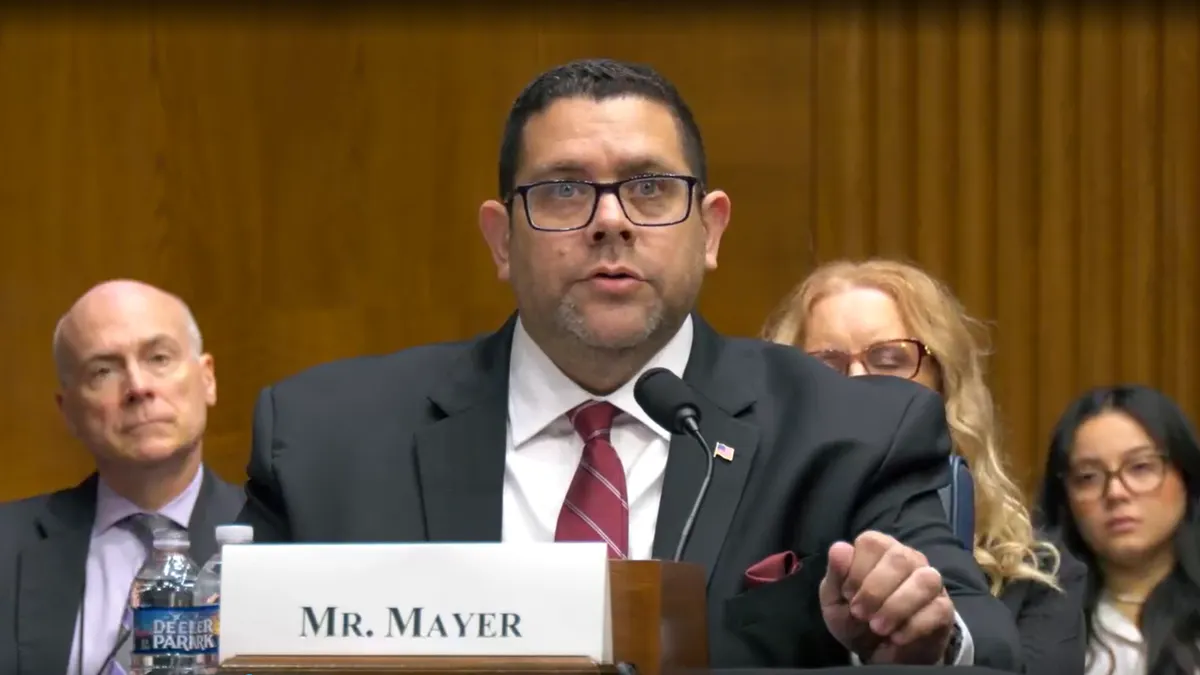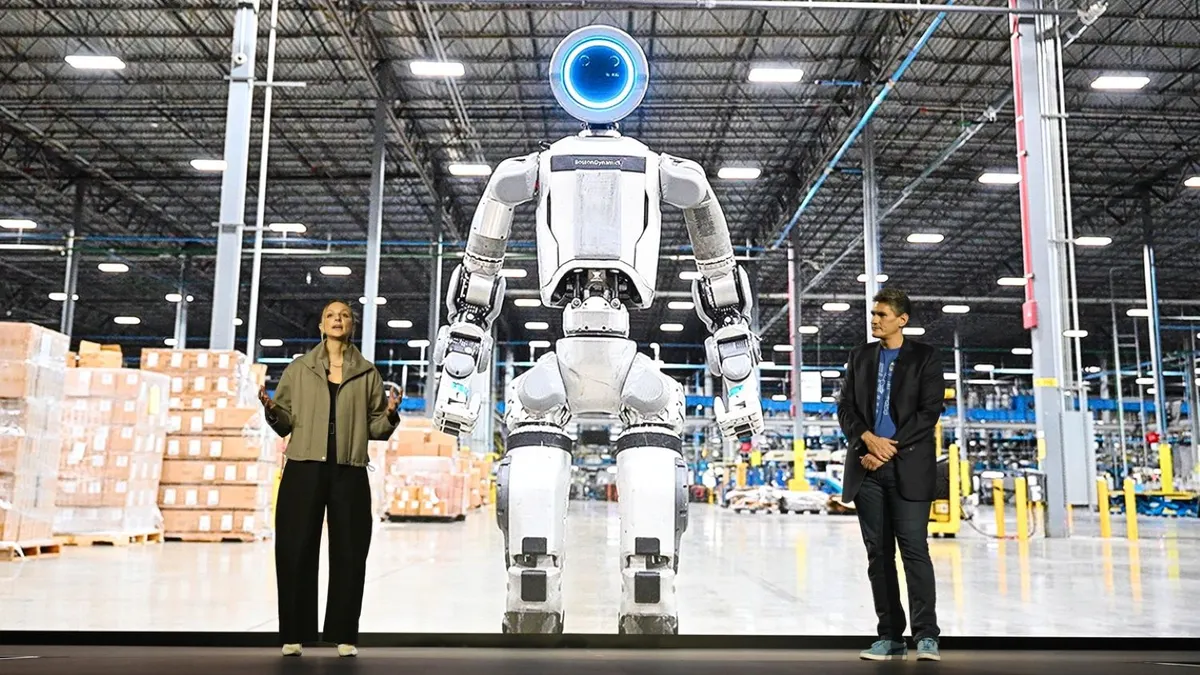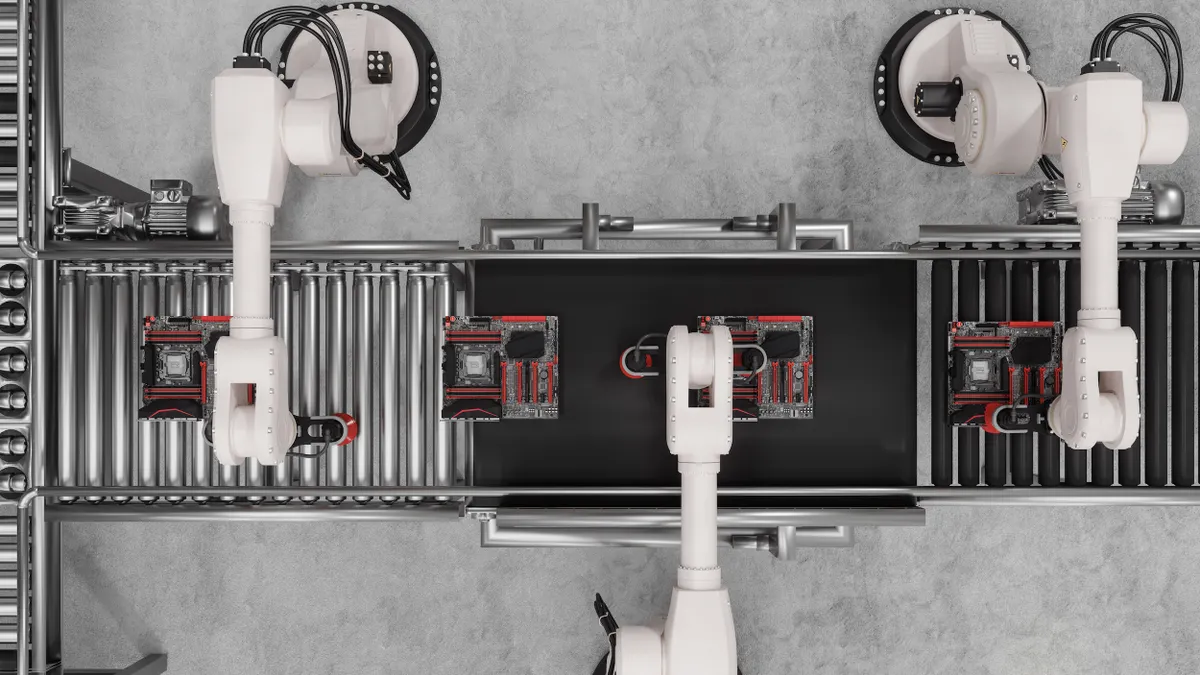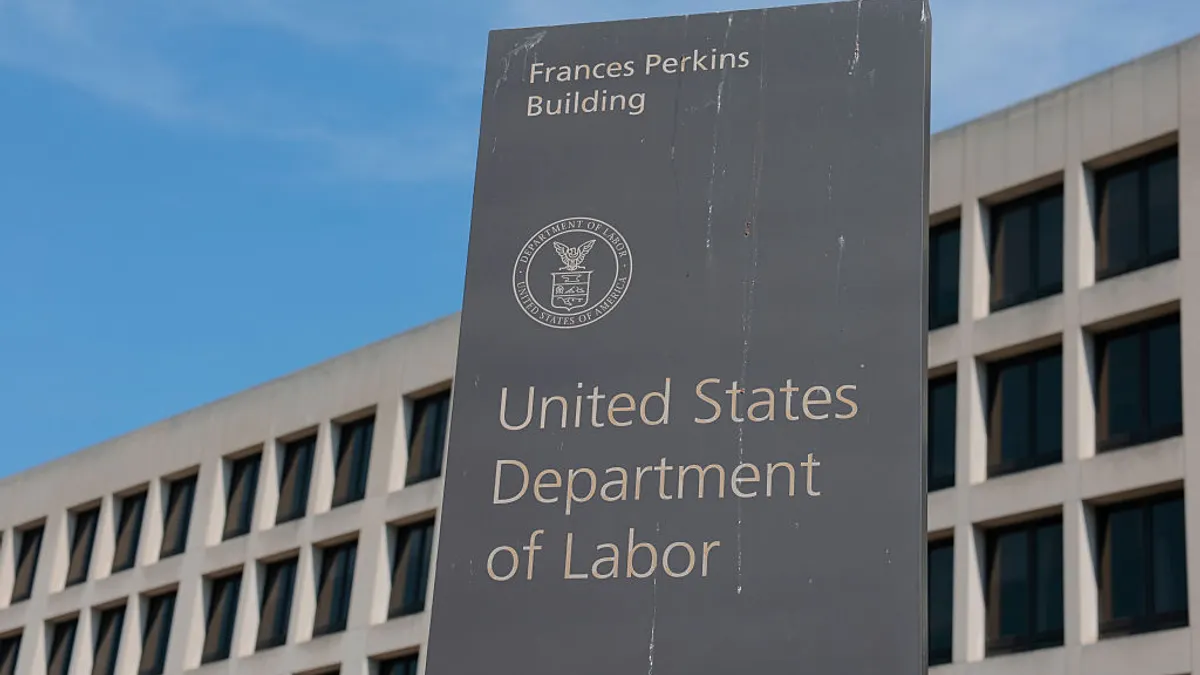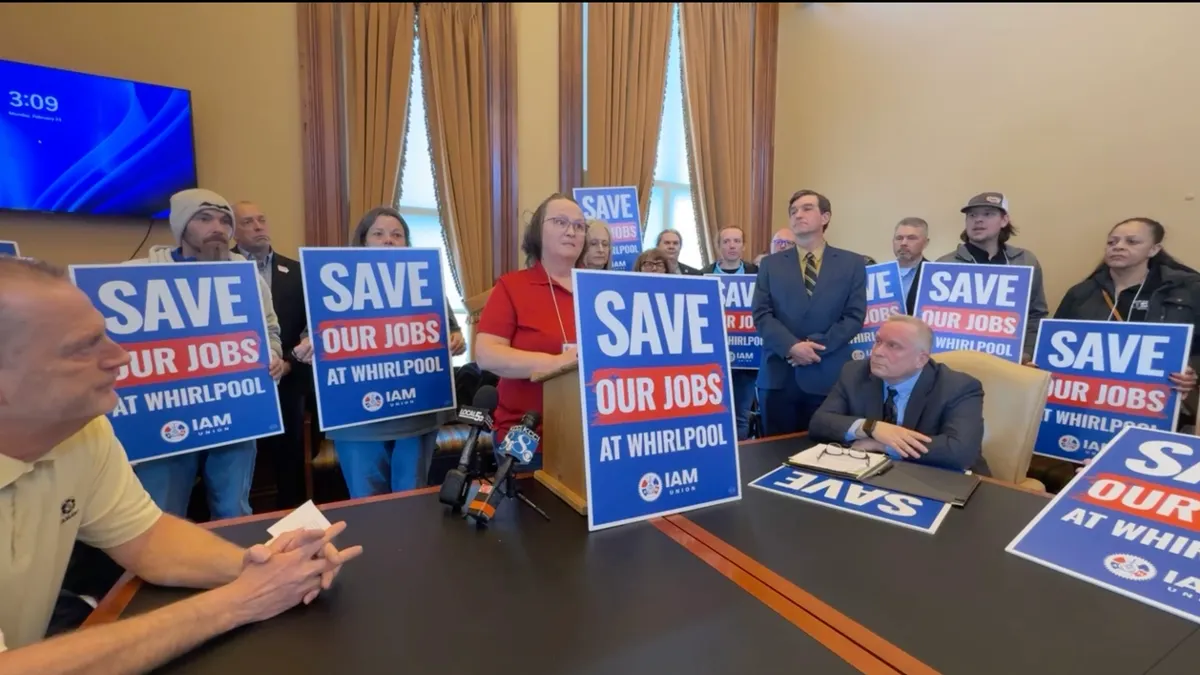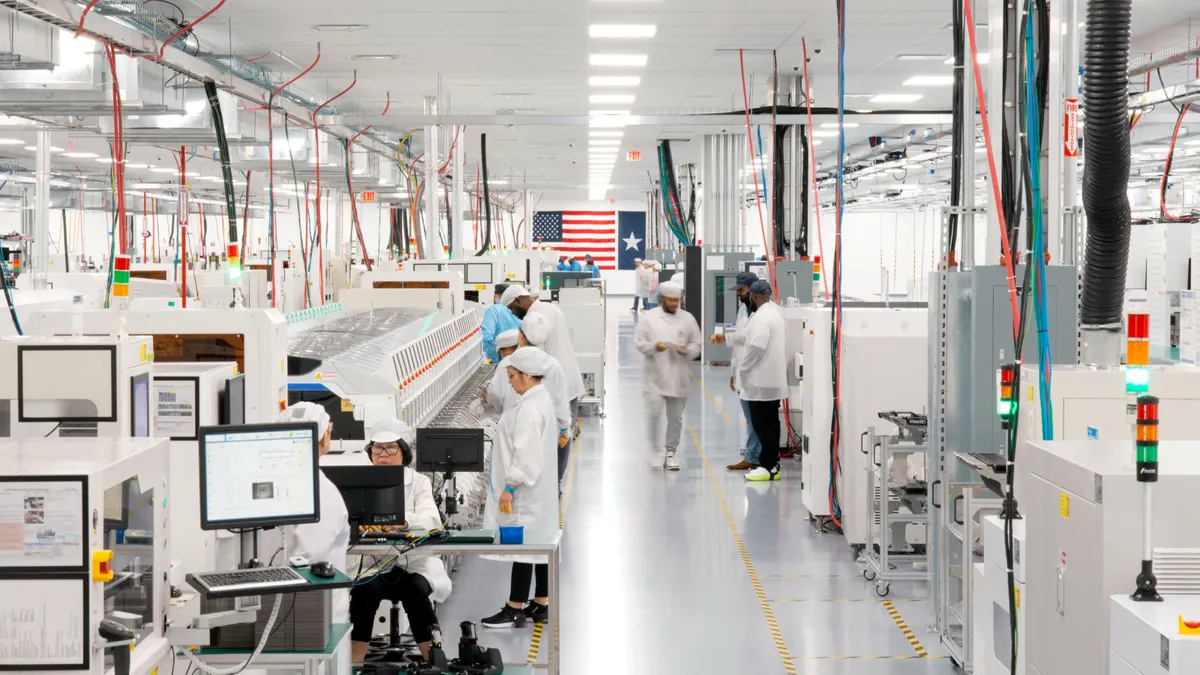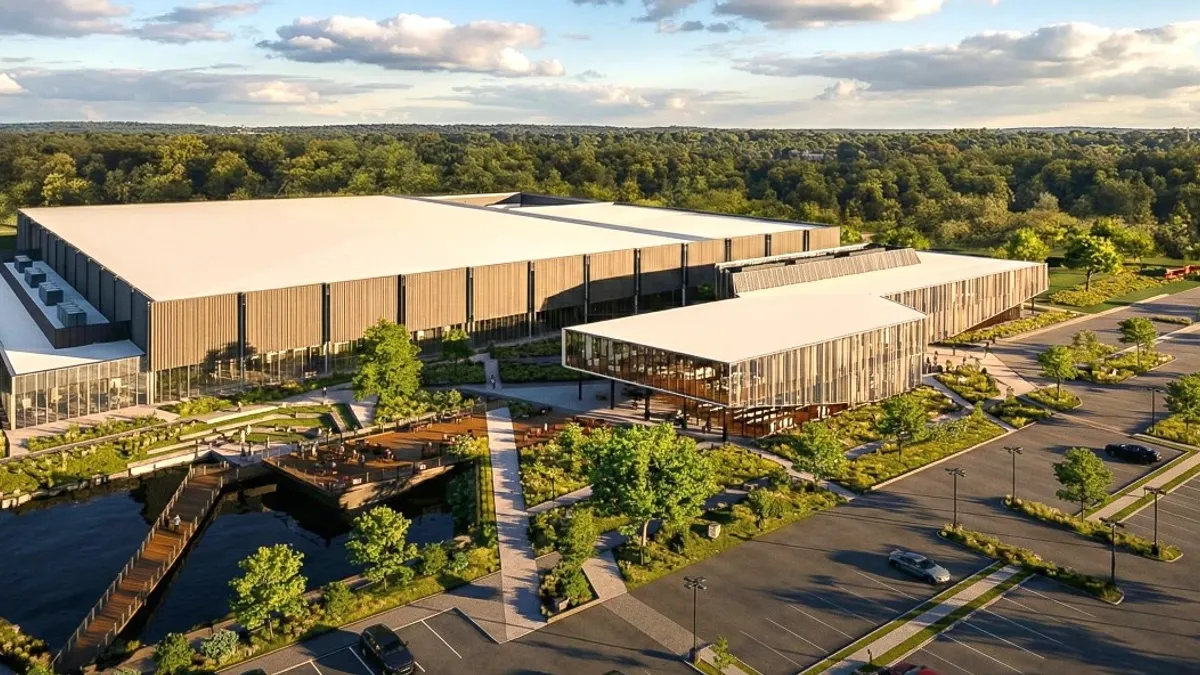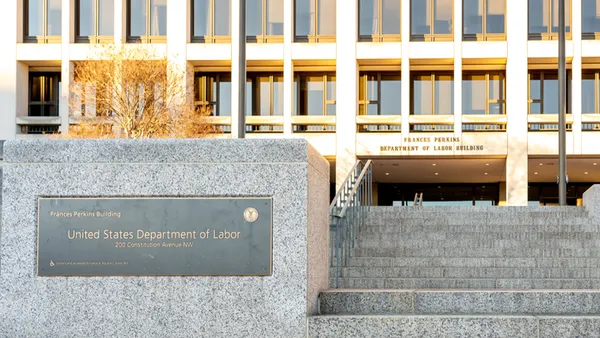U.S. senators grilled Boeing’s in-house labor attorney about the company’s ongoing workers’ strike at its St. Louis area facilities at a confirmation hearing on Wednesday.
President Donald Trump nominated Boeing Chief Labor Counsel Scott Mayer to be a member of the National Labor Relations Board in July. Mayer has served as Boeing’s chief labor counsel since June 2022, according to his LinkedIn profile. Before joining Boeing, Mayer served in several labor attorney roles for other prominent companies, including InterContinental Hotels Group, MGM Resorts International and Aramark.
Approximately 3,200 Boeing workers represented by the International Association of Machinists and Aerospace Workers District 837 have been on strike since Aug. 4 at the company’s facilities in St. Louis and St. Charles, Missouri, and Mascoutah, Illinois. The factories assemble the F/A-18 Super Hornet fighter jet and other military aircraft and weapons systems under Boeing’s defense segment.
Sens. Bernie Sanders and Josh Hawley raised the issue of CEO Kelly Ortberg’s compensation, as well as incidents that occurred under former chief executives Dave Calhoun and Dennis Muilenberg, which Sanders said left Boeing with “golden parachutes.”
Boeing CEOS, past and present, and their compensation
The lawmakers repeatedly asked Mayer if it was fair that Boeing’s CEOs, current and former, are compensated millions of dollars while the St. Louis factory workers are paid low wages and lack health benefits. Sanders met with the striking workers on a Zoom call on Tuesday and stated at the hearing that he was shocked by what he heard, such as employees earning $18 an hour.
“Many of them went on strike because they were sick and tired of needing to work two or three jobs just to make ends meet,” Sanders said. “Meanwhile, you have a company in which [it] just recently could afford to pay its CEO, Mr. Ortberg, $18 million for four months of work.”
Mayer told the Senate committee that he was not involved in the negotiations between the company and defense Machinists and declined to comment on the ongoing strike discussions and executive compensation. Though he added that “the concept of fairness is an elusive one.”
Hawley, who represents the state of Missouri, asked Mayer if Boeing plans to “do right by these workers” and brought up Calhoun’s compensation when he left the company.
“That was a 45% increase over the previous year,” Hawley said. “At that point in time, your planes were literally falling out of the sky in pieces, and you weren’t paying your workers. Is that fair?”
The senators also asked Mayer why the company cannot give its St. Louis area employees the same wages and benefits as its workers on the West Coast to end the strike. Last year’s nearly two-month work stoppage included 33,000 Boeing employees represented by IAM District 751 and W24 at the company’s commercial aircraft facilities in Washington, Oregon and California.
Mayer said he was involved with last year’s strike negotiations but added that every negotiation is different.
“How is this going to end?” Hawley said.
If Mayer is confirmed, he will resign from his chief labor role at Boeing, according to his Aug. 28 letter to the NLRB’s Designated Agency Ethics Official. Mayer said he will also forfeit any unvested restricted stock units and divest all Boeing stock and vowed he will not participate in situations involving Boeing until he has unloaded his shares or obtains a written waiver.
Wednesday’s confirmation hearing involved other Trump nominees, including James Murphy for the NLRB. If he and Mayer are confirmed, both nominees would succeed two former board chairs: Marvin Kaplan, whose term expired Aug. 27, and Gwynne Wilcox, the first Black woman to serve on the NLRB and whom Trump fired in January.
Additionally, Trump nominated Rosario Palmieri as the Labor Department’s assistant secretary for policy. If confirmed, Palmieri would succeed Rajesh Nayak, who left the role last year for a fellowship at Harvard Law School, according to a post on his LinkedIn.
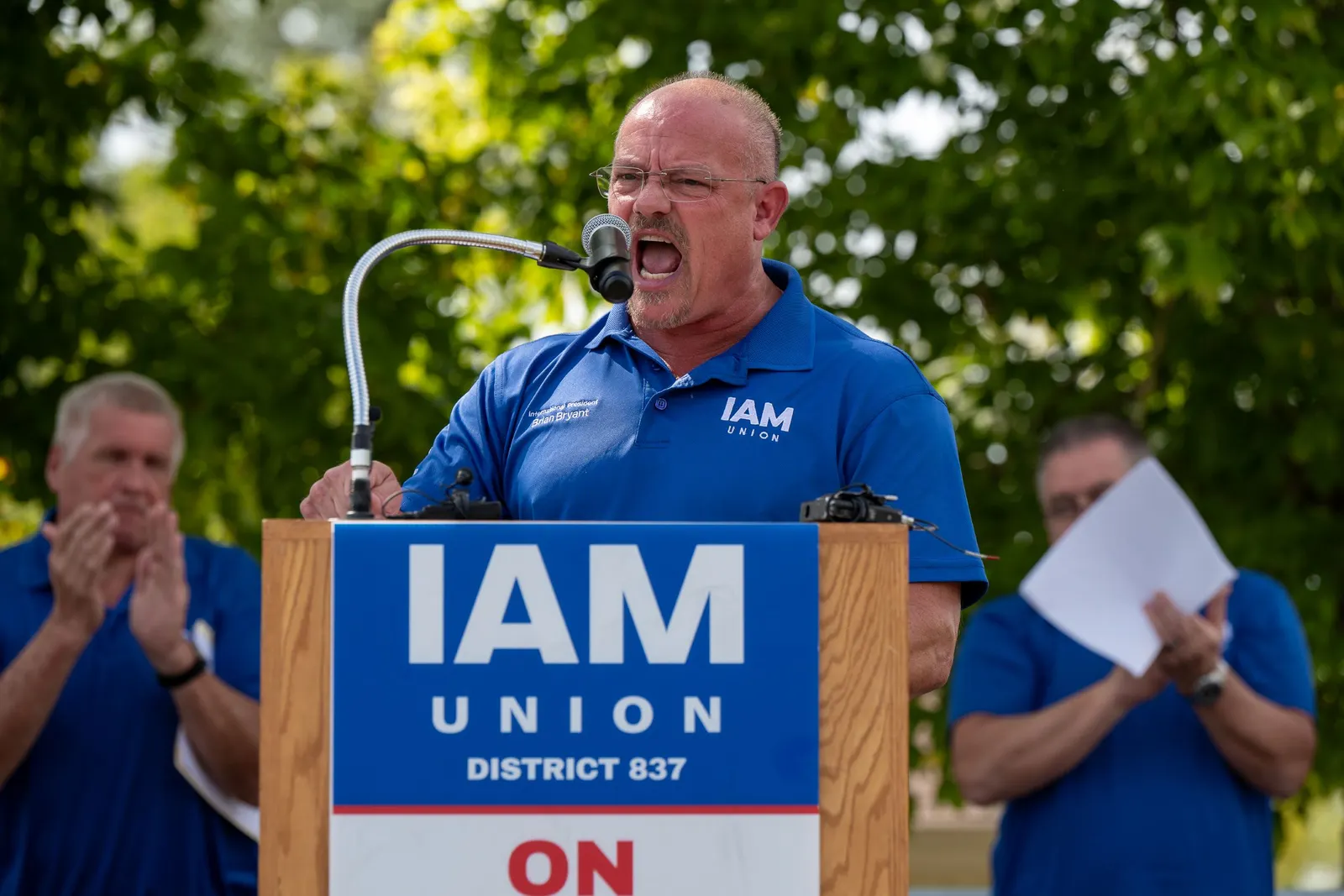
Negotiations between IAM District 837 and Boeing remain strained. The two parties returned to the bargaining table on Monday, but Boeing maintained its original offer that workers had rejected last month and the union said workers would not revote on.
“They thought they could recycle the same rejected deal and call it progress,” Sam Cicinelli, IAM Midwest territory general VP, said at a union rally on Wednesday. “Let me tell you something, that’s not progress, that’s an insult.”
However, IAM submitted a modified strike settlement offer to the company on Tuesday through the federal mediator, according to an email. The union would not comment on the changes made to its proposal, but stated that they are “within the parameters of the pre-ratified agreement approved by our membership.” If Boeing accepts the union’s adjusted offer, workers would need to vote on the proposal, according to IAM District 837’s website.
“We’ve made it clear we’re ready and willing to discuss proposals within the parameters of our market-leading offer that union leadership has twice endorsed, not modifications to their self-drafted proposal,” Boeing said in a Sept. 30 statement. “We’ll stay focused on executing our contingency plan, hiring permanent replacements and supporting our customers.”
Sanders sent a letter to Ortberg on Wednesday, urging the company head to “do the right thing,” return to the negotiating table, bargain in good faith and consider accepting the union’s proposal.
Boeing and IAM may have to resume negotiations without a federal mediator due to the government shutdown that began on Wednesday. The Federal Mediation and Conciliation Service is administering only limited essential operations, according to the agency’s website.
While mediators have been furloughed, mediators have been pre-approved to return to work if Boeing or IAM needs their services, the union said in an email.



